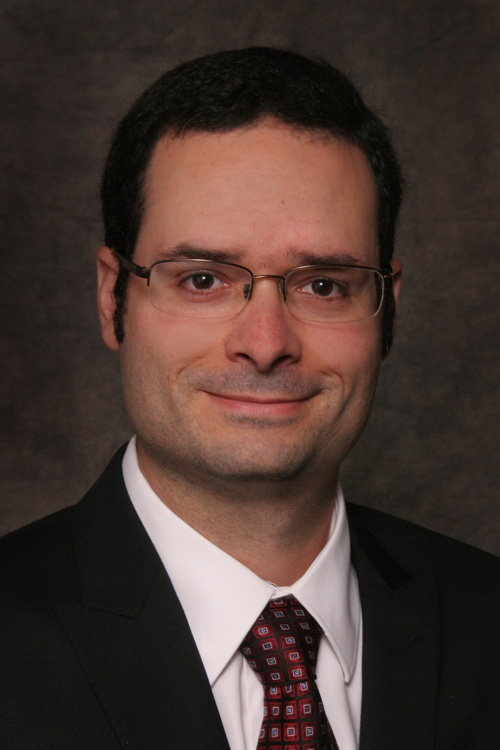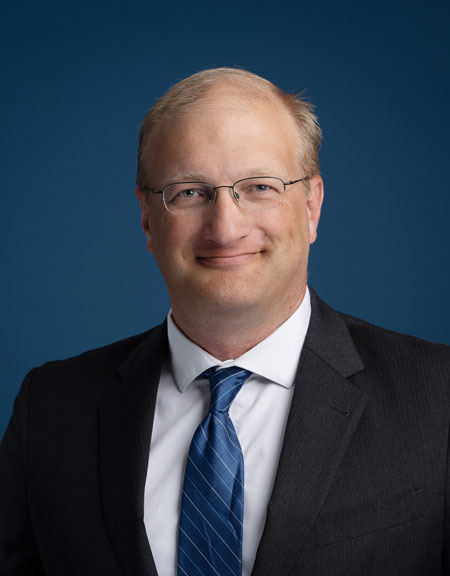Garcia and Beardsley receive AHW Momentum Grants
November 21, 2025
Drs. Guilherme Garcia and Scott Beardsley from the Marquette University and Medical College of Wisconsin Joint Department of Biomedical Engineering have each been awarded Momentum Grants in the amount of $250,000 from the Advancing a Healthier Wisconsin Endowment for projects addressing pressing health challenges in Wisconsin.
As a competitive funding mechanism, AHW Momentum Grants support MCW-led collaborative projects that advance community health, health-focused research, and health workforce development initiatives.
The Joint Department of Biomedical Engineering extends its congratulations to each researcher in recognition of their outstanding contributions to the field of biomedical engineering and continued efforts to advance knowledge in the pursuit of changing life.
AI-Based Quantitative Endoscopy for Airway Evaluation
 Endoscopy is a widely used diagnostic tool for upper airway maladies such as obstructive sleep apnea, or OSA, a disorder common amongst the Wisconsin population. Current endoscopic technology provides enhanced visualization but lacks the ability to measure airway size, information that would be invaluable in determining the underlying mechanisms causing an individual's OSA and directing them to appropriate therapies. With this grant, Dr. Garcia and collaborators seek to transform the diagnostic process by creating a quantitative endoscopy system capable of rapidly quantifying airway size.
Endoscopy is a widely used diagnostic tool for upper airway maladies such as obstructive sleep apnea, or OSA, a disorder common amongst the Wisconsin population. Current endoscopic technology provides enhanced visualization but lacks the ability to measure airway size, information that would be invaluable in determining the underlying mechanisms causing an individual's OSA and directing them to appropriate therapies. With this grant, Dr. Garcia and collaborators seek to transform the diagnostic process by creating a quantitative endoscopy system capable of rapidly quantifying airway size.
As a proof of concept, Dr. Garcia’s team recently completed a pilot project based on virtual endoscopy images generated from anatomic models of the nasal cavity built from CT scans. This pilot project demonstrated that airway size can be estimated from AI-generated depth maps. The AHW-funded project will validate this technology using real endoscopy images of the nasal cavity. If successful, this innovation will revolutionize surgical planning for patients with obstructive sleep apnea and other airway disorders, allowing physicians to base treatment decisions on precise, objective data rather than visual estimation.
Dr. Garcia is the director of the Airway Biomechanics Laboratory at the Marquette University and Medical College of Wisconsin Joint Department of Biomedical Engineering. The lab’s mission is to advance understanding of respiratory physiology and improve the diagnosis and treatment of airway diseases through computational modeling and experimental validation. He will be joined in this effort by Drs. John Rhee and Ryan Puccia from MCW’s Department of Otolaryngology and Communication Sciences, Dr. Jake Luo from the University of Wisconsin–Milwaukee, and Christopher Larkee from Marquette's Opus College of Engineering.
Learn more about the Airway Lab
Using fNIRS to Improve Neurologic Outcome Prediction in Critically Ill Children
 Parents of children with neurological conditions must often make very difficult decisions effecting the quality and quantity of life of their children. These decisions are based on the best possible prognostic information available; however, it has been shown that the prognostic capabilities for pediatric patients suffering from neurological conditions in Wisconsin is only 75% accurate.
Parents of children with neurological conditions must often make very difficult decisions effecting the quality and quantity of life of their children. These decisions are based on the best possible prognostic information available; however, it has been shown that the prognostic capabilities for pediatric patients suffering from neurological conditions in Wisconsin is only 75% accurate.
Dr. Beardsley and collaborators seek to increase the prognostic accuracy for pediatric neurologic patients by using functional near-infrared spectroscopy, or fNIRS, to help medical professionals better identify a medical phenomenon called cognitive motor dissociation, or CMS. With CMS, otherwise seemingly comatose patients are shown to exhibit brain activity associated with listening, thinking, and completing cognitive tasks. This heightened level of brain activity would suggest a prognosis more favorable than previously imagined. Unfortunately, research surrounding this diagnosis in children is limited. Thus, developing technology to identify CMD in pediatric patients stands to offer valuable insight into critical decision making for this vulnerable population.
Dr. Beardsley is the director of the Integrative Neural Systems Laboratory at the Medical College of Wisconsin. His lab integrates human behavioral studies, multimodal brain imaging, and computational modeling to examine how brain networks control visually guided movement and how neurological diseases alter brain structure and function. His lab joins Dr. Farias-Moeller, Professor in MCW’s Department of Neurology, in this effort to advance pediatric neurocritical care through the application of novel neuroimaging technologies that enhance prognostic precision and improve patient outcomes.
Learn more about INSL

 Endoscopy is a widely used diagnostic tool for upper airway maladies such as obstructive sleep apnea, or OSA, a disorder common amongst the Wisconsin population. Current endoscopic technology provides enhanced visualization but lacks the ability to measure airway size, information that would be invaluable in determining the underlying mechanisms causing an individual's OSA and directing them to appropriate therapies.
Endoscopy is a widely used diagnostic tool for upper airway maladies such as obstructive sleep apnea, or OSA, a disorder common amongst the Wisconsin population. Current endoscopic technology provides enhanced visualization but lacks the ability to measure airway size, information that would be invaluable in determining the underlying mechanisms causing an individual's OSA and directing them to appropriate therapies. 
